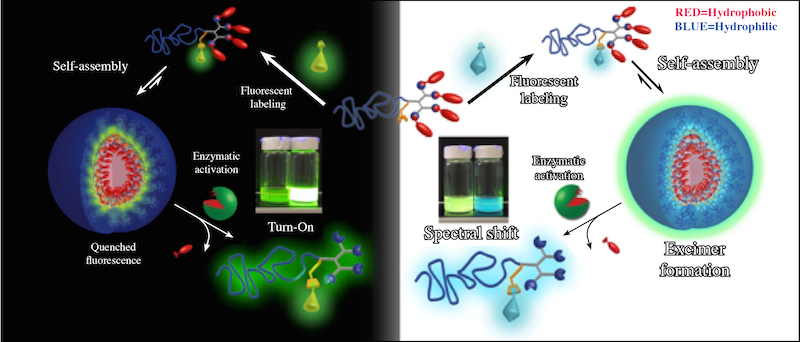Spring 2016 Seminar Series
PPSM sponsors a series of seminars covering a broad range of topics of general interest to the polymer community, featuring speakers from both on and off campus. [LIST OF PPSM SEMINARS 1986 to PRESENT] We invite the polymer community at MIT and elsewhere to participate. For further information, contact Professor Jeremiah Johnson at jaj2109@mit.edu. All talks take place on Wednesdays.
If you would like to receive Tuesday and Wednesday email announcements of the next upcoming PPSM seminar, please email your request including your email address to:
ppst-www@mit.edu
JUNE 20th 2016 SEMINAR LOCATION: 66-110
NOTE SPECIAL TIME: Seminar 4:30 PM • Refreshments 4:00 PM

“Designing enzyme-responsive polymeric micelles
with diverse supramolecular spectral responses”
Department of Organic Chemistry
Tel Aviv University
ABSTRACT:
The increasing demand for smart drug delivery systems that can release their molecular payload selectively at the target tissue has motivated the development of stimuli-responsive polymeric nanocarriers. Among the various types of stimuli, such as pH, temperature and light, enzymes offer great potential due to the often-observed over-expression of specific disease-associated enzymes, which could potentially be utilized to trigger the release of drugs only at the target site. In this talk I will present a highly modular design of amphiphilic block copolymers based on a linear hydrophilic polyethylene glycol (PEG) and an enzyme-responsive dendron bearing enzymatically cleavable lipophilic end-groups as the hydrophobic block. These PEG-Dendron hybrids can be synthesized in high yields by accelerated divergent approach, utilizing a combination of amidation and tiol-yne reactions. The obtained amphiphilic hybrids self-assembled in water into smart micelles that could disassemble and release the encapsulated molecular cargo upon enzymatic activation. Based on these hybrids, we designed the next generation of smart polymers that can report their self-assembly and disassembly by changing their spectral properties in parallel with the enzymatically induced structural change. These self-reporting hybrids open the way for advanced diagnostic and therapeutic systems that can report their location and degree of activation.

|
 Massachusetts Institute of Technology Cambridge, MA 02139-4307
Massachusetts Institute of Technology Cambridge, MA 02139-4307
![]() Massachusetts Institute of Technology Cambridge, MA 02139-4307
Massachusetts Institute of Technology Cambridge, MA 02139-4307

